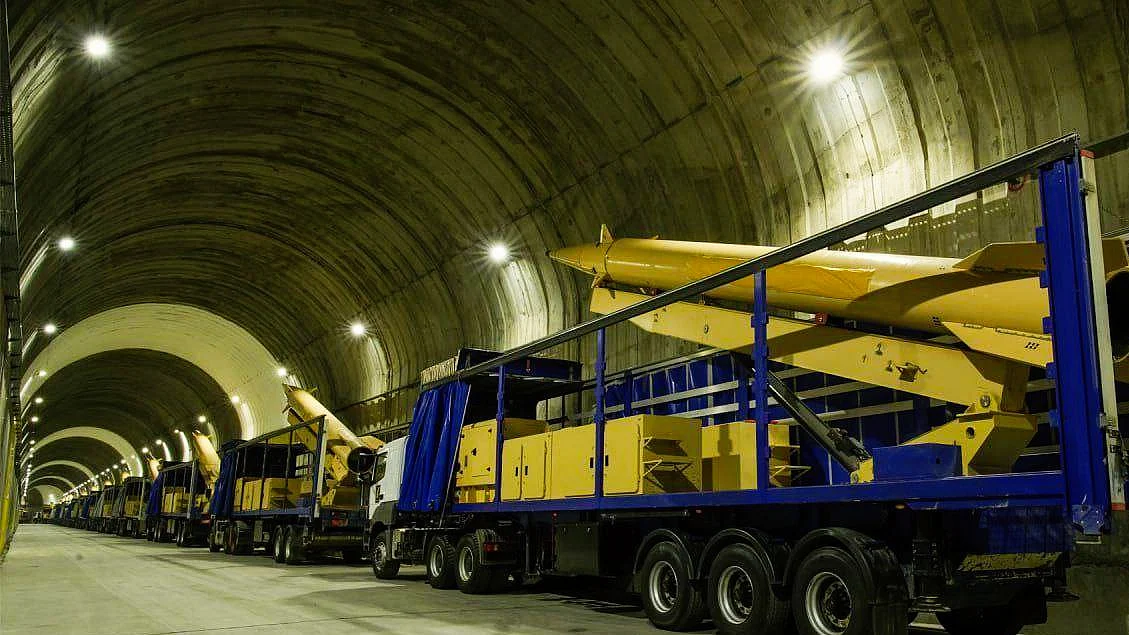Iran rebuilding missile sites after Israeli strikes but key equipment still missing
Facilities were also damaged in June by US stealth bombers dropping massive bunker buster bombs

Satellite images show Iran is swiftly repairing missile facilities damaged during the 12-day war with Israel in June — which also saw US stealth bombers drop massive bunker buster bombs on the facilities — though key machinery needed to produce solid fuel for ballistic missiles remains absent. Experts say Iran’s ability to resume full missile production depends on acquiring these specialised planetary mixers.
Planetary mixers are essential machines used to blend solid rocket fuel ingredients uniformly. They feature blades that rotate around a central point, ensuring better mixing than conventional equipment. Analysts suggest China remains the most likely supplier, as it has provided Iran with missile fuel components in the past.
Reconstructing missile infrastructure is high priority for Tehran, especially after the conflict weakened its air defence systems. Iran views its missile arsenal as a vital deterrent and excludes it from any nuclear negotiations with the West.
Sam Lair, a researcher at the James Martin Centre for Nonproliferation Studies has been quoted in media as saying: "If they’re able to reacquire some key things like planetary mixers, then that infrastructure is still there and ready to get rolling again."
Iran’s UN mission did not respond to questions about the rebuilding efforts or equipment procurement.
Solid-fuel missiles can be launched quickly compared to liquid-fuel types that require fuel loading just before launch, making them more tactically valuable. During the recent conflict, Iran launched 574 ballistic missiles at Israel, according to the Jewish Institute for National Security of America (JINSA). An earlier exchange saw 330 more missiles fired.
Before the war, Iran was estimated to have about 2,500 missiles. Firing nearly a third of this stockpile during the conflict demonstrates the intensity of the battle.
Iran had been producing over 200 solid-fuel missiles monthly before Israeli airstrikes targeted key missile production sites near Tehran — Khojir, Parchin, and Shahroud. Satellite images from September reveal repair work on buildings believed to house the mixers, with construction active at Parchin and Shahroud.
The speed of reconstruction underlines Iran’s commitment to its missile programme. Nuclear facilities damaged in the conflict have not shown similar restoration activity.
Carl Parkin, also from the James Martin Centre, noted: "Israel’s targeting indicates they believed mixing was a bottleneck in Iran’s missile production. If Iran overcomes their mixing limitations, they’ll have all the casting capacity needed for high-volume production again."
With the United Nations expected to reimpose sanctions soon, Iran is likely intensifying efforts to source mixers and missile fuel ingredients from China. The US State Department has sanctioned Chinese companies alleged to have supplied Iran with ballistic missile propellant components.
Iran may also be transferring equipment to allies in the region. Analysts say Iran’s Revolutionary Guard provided a planetary mixer to a Syrian missile site near Masyaf. Israeli military footage from a 2024 raid showed equipment resembling Chinese-made mixers.
Iran’s President Masoud Pezeshkian and military officials recently attended China’s Victory Day parade, fuelling speculation of expanded cooperation, though no official details have been released. China’s Foreign Ministry told the Associated Press that Beijing supports Iran’s sovereignty but is concerned about rising Middle East tensions.
Senior fellow Can Kasapoglu of the Hudson Institute warned that China could supply Iran with guidance systems and microprocessors, enhancing missile effectiveness.
‘If Iran uses its relationship with China to bolster its military capabilities, the 12-day war may be only a temporary setback,’ he said.
If Iran restores its missile production to prewar levels, it will be harder for Israel to destroy launch sites or intercept missiles before they reach their targets.
Lair said: "They are clearly very invested in their missile programme and won’t negotiate it away."
Iran’s defence minister Gen. Aziz Nasirzadeh acknowledged the war changed priorities, stating on 22 August: "We are now focused on producing military equipment with higher precision and greater operational capabilities."
Follow us on: Facebook, Twitter, Google News, Instagram
Join our official telegram channel (@nationalherald) and stay updated with the latest headlines
